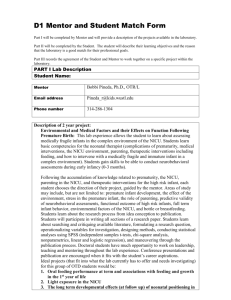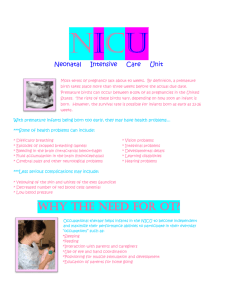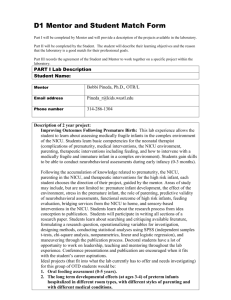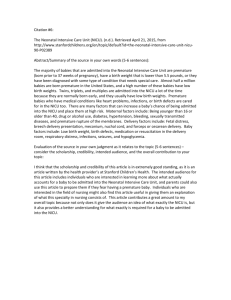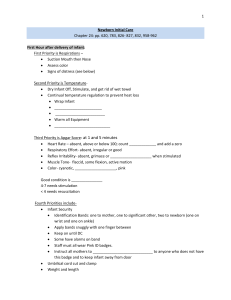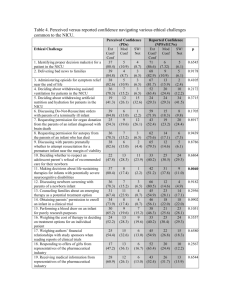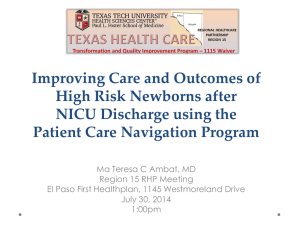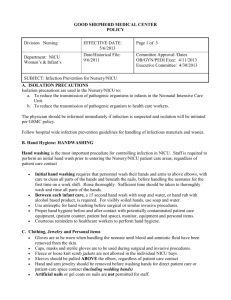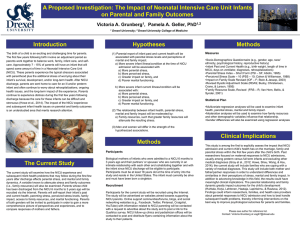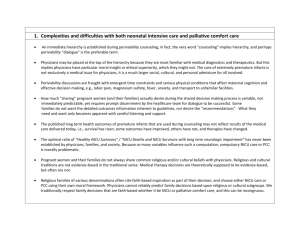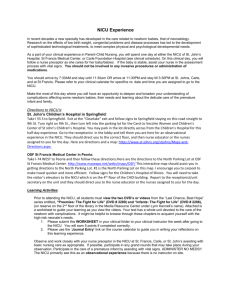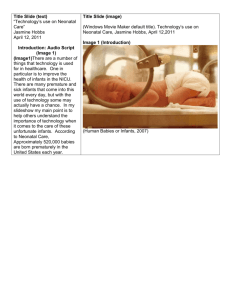D1 Mentor and Student Match Form
advertisement
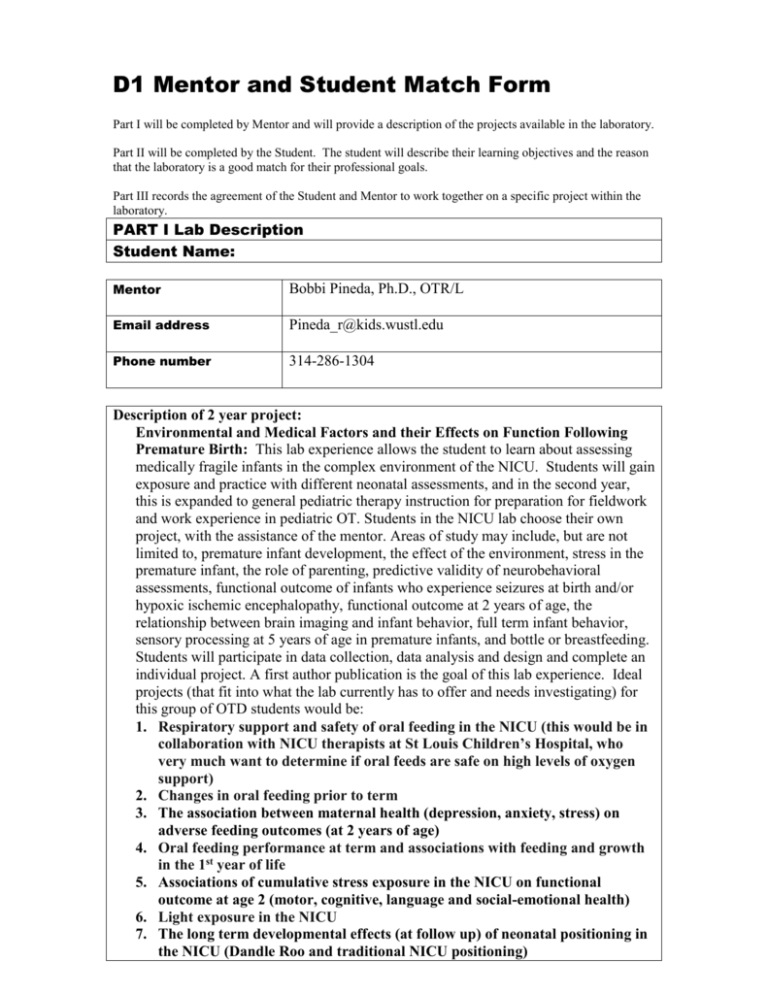
D1 Mentor and Student Match Form Part I will be completed by Mentor and will provide a description of the projects available in the laboratory. Part II will be completed by the Student. The student will describe their learning objectives and the reason that the laboratory is a good match for their professional goals. Part III records the agreement of the Student and Mentor to work together on a specific project within the laboratory. PART I Lab Description Student Name: Mentor Bobbi Pineda, Ph.D., OTR/L Email address Pineda_r@kids.wustl.edu Phone number 314-286-1304 Description of 2 year project: Environmental and Medical Factors and their Effects on Function Following Premature Birth: This lab experience allows the student to learn about assessing medically fragile infants in the complex environment of the NICU. Students will gain exposure and practice with different neonatal assessments, and in the second year, this is expanded to general pediatric therapy instruction for preparation for fieldwork and work experience in pediatric OT. Students in the NICU lab choose their own project, with the assistance of the mentor. Areas of study may include, but are not limited to, premature infant development, the effect of the environment, stress in the premature infant, the role of parenting, predictive validity of neurobehavioral assessments, functional outcome of infants who experience seizures at birth and/or hypoxic ischemic encephalopathy, functional outcome at 2 years of age, the relationship between brain imaging and infant behavior, full term infant behavior, sensory processing at 5 years of age in premature infants, and bottle or breastfeeding. Students will participate in data collection, data analysis and design and complete an individual project. A first author publication is the goal of this lab experience. Ideal projects (that fit into what the lab currently has to offer and needs investigating) for this group of OTD students would be: 1. Respiratory support and safety of oral feeding in the NICU (this would be in collaboration with NICU therapists at St Louis Children’s Hospital, who very much want to determine if oral feeds are safe on high levels of oxygen support) 2. Changes in oral feeding prior to term 3. The association between maternal health (depression, anxiety, stress) on adverse feeding outcomes (at 2 years of age) 4. Oral feeding performance at term and associations with feeding and growth in the 1st year of life 5. Associations of cumulative stress exposure in the NICU on functional outcome at age 2 (motor, cognitive, language and social-emotional health) 6. Light exposure in the NICU 7. The long term developmental effects (at follow up) of neonatal positioning in the NICU (Dandle Roo and traditional NICU positioning) 8. Association of early neurobehavior (at 7-10 days of age) and functional outcome in infants with hypoxic ischemic encephalopathy 9. Thumb adduction and associations with outcome 10. Visual development of the premature infant 11. Early visual interaction and associations with autism risk 12. Caregiver concern and intent to access therapy at NICU discharge and associations with early intervention service implementation 13. Psychometrics of neurobehavioral evaluations (Dubowitz, Premie Neuro) 14. Anesthesia exposure (surgical) and associations with neurobehavior 15. Feeding behaviors of children with cardiac disease. 16. Advanced MRI and associations with function Expectations (time, lab hours, transportation needs, etc) Over the Christmas break, students will be expected to read a premature infant book designed for parents of preemies in preparation for being immersed in education to achieve minimum competencies needed for working in the NICU. Flexibility in scheduling is necessary, and students can expect to dedicate 8-10 hours per week at St Louis Children’s Hospital and the Patient Oriented Research Unit. The student will also be expected to participate in weekly meetings to become acclimated to the research environment and multidisciplinary team as well as participate in weekly meetings with the research mentor. This experience will require a strong student capable of interacting with infants who are 1-2 pounds, are intubated, have intravenous lines, are attached to cardiovascular monitors, etc. This experience also requires a highly motivated student, who can perform well within a working lab, has good problem solving abilities, and can meet deadlines. Strong writing skills are expected. It is expected that students have a strong interest in pursuing OT in a pediatric setting and/or are interested in research. Many opportunities for presenting, publishing and achieving leadership are available within the lab. PART II Student Self-evaluation List your learning objectives for working in this laboratory: How will this laboratory experience help you achieve your professional goals? Describe your successful learning style and level of self-directedness: Part III Mentorship Agreement Student Name and Campus Address: Title or Brief description of doctoral project (focus and form of project will be determined after completion of OT572): Student Signature & Date: Mentor Signature & Date: *Original signatures required
